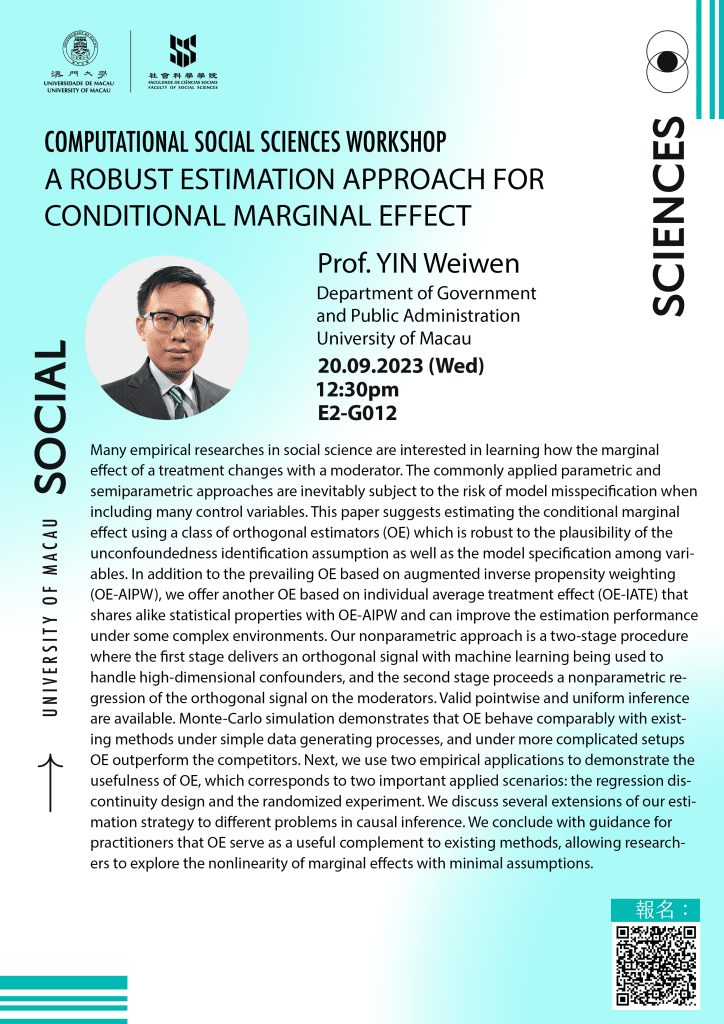FSS Computational Social Sciences Workshop: “A Robust Estimation Approach for Conditional Marginal Effect” by Prof. Weiwen YIN (20 September, 12:30, E2-G012)
計算社會科學工作坊 - 講者:尹偉文教授 (9月20日, 12:30, E2-G012)
The Faculty of Social Sciences (FSS) is holding a series of Computational Social Sciences Workshop. We have the pleasure to invite Prof. Weiwen YIN to deliver the first seminar on “A Robust Estimation Approach for Conditional Marginal Effect” in AY2023/2024. Details of the Workshop are as follows:
Date: 20 September 2023 (Wednesday)
Time: 12:30 – 14:00
Venue: E2-G012
Please register by 19/09/2023 (Tuesday) 1pm:
https://forms.gle/PqUMEsotsR5wbhCL9

Speaker: Prof. Weiwen Yin is currently an assistant professor at the Department of Government and Public Administration, University of Macau. He received his Ph.D. from the Department of Political Science, Texas A&M University. His research interests include comparative and international political economy, historical political economy, and quantitative methods. His publications appear in Journal of Conflict Resolution, Review of International Organizations, Political Science Research and Methods, among others.
Abstract: Many empirical researches in social science are interested in learning how the marginal effect of a treatment changes with a moderator. The commonly applied parametric and semiparametric approaches are inevitably subject to the risk of model misspecification when including many control variables. This paper suggests estimating the conditional marginal effect using a class of orthogonal estimators (OE) which is robust to the plausibility of the unconfoundedness identification assumption as well as the model specification among variables. In addition to the prevailing OE based on augmented inverse propensity weighting (OE-AIPW), we offer another OE based on individual average treatment effect (OE-IATE) that shares alike statistical properties with OE-AIPW and can improve the estimation performance under some complex environments. Our nonparametric approach is a two-stage procedure where the first stage delivers an orthogonal signal with machine learning being used to handle high-dimensional confounders, and the second stage proceeds a nonparametric regression of the orthogonal signal on the moderators. Valid pointwise and uniform inference are available. Monte-Carlo simulation demonstrates that OE behave comparably with existing methods under simple data generating processes, and under more complicated setups OE outperform the competitors. Next, we use two empirical applications to demonstrate the usefulness of OE, which corresponds to two important applied scenarios: the regression discontinuity design and the randomized experiment. We discuss several extensions of our estimation strategy to different problems in causal inference. We conclude with guidance for practitioners that OE serve as a useful complement to existing methods, allowing researchers to explore the nonlinearity of marginal effects with minimal assumptions.